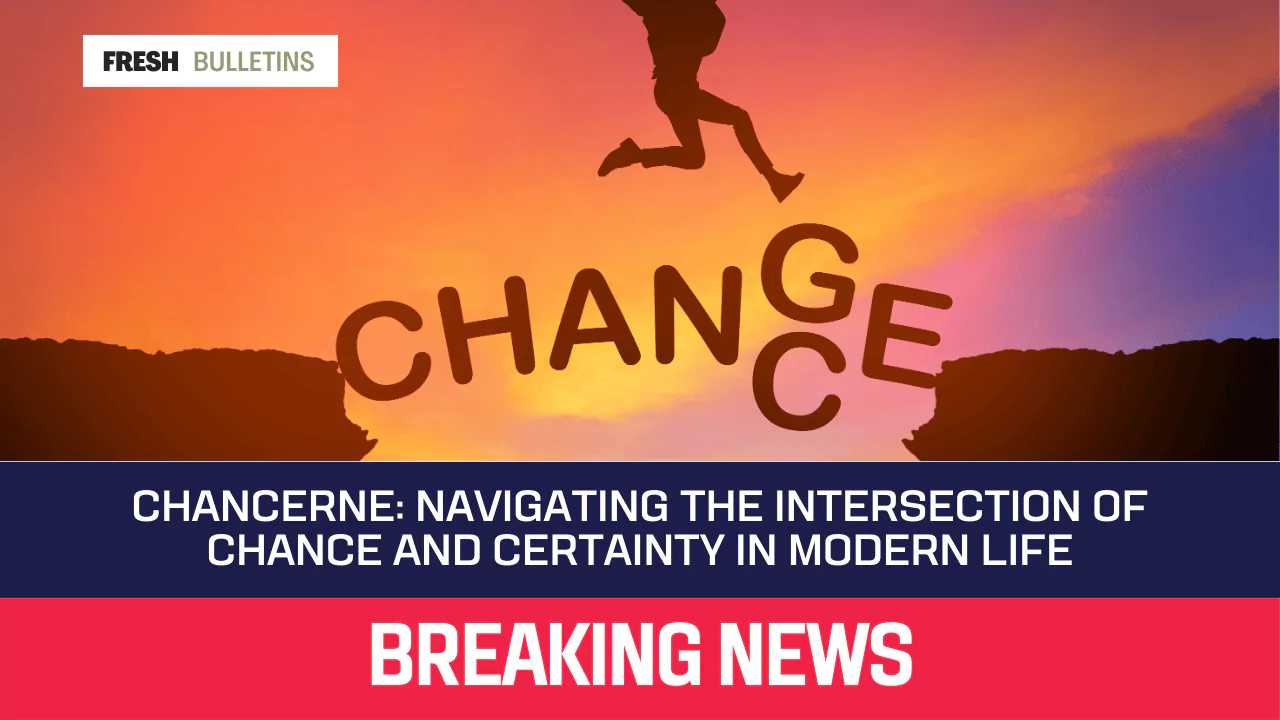Chancerne: Navigating the Intersection of Chance and Certainty in Modern Life
Chancerne is about balancing the unpredictable nature of life with the stable need for order. It is the process of finding harmony between random events and structured outcomes. In this balance, individuals and organizations can thrive by being both adaptable and prepared.
The Origin of Chancerne
Etymology and Definition
The word “Chancerne” blends “chance” and “certainty.” It represents how patterns or meaningful outcomes can emerge from seemingly random processes. It’s a concept that challenges the traditional view of randomness and disorder, suggesting hidden structures within chaos.
Ancient Philosophical Roots
Chancerne’s roots trace back to ancient civilizations. Early societies engaged with uncertainty to survive, developing risk management strategies. For instance, farmers in ancient times used their understanding of seasons to predict harvest outcomes. This ancient interaction with unpredictability laid the groundwork for Chancerne.
The Core Concepts of Chancerne
Flexibility
Flexibility is a central aspect of Chancerne. This means being able to adapt to changes and unexpected events. In both personal and professional realms, flexibility allows for quick adjustment and the ability to seize new opportunities.
Planning
While flexibility is crucial, planning provides the structure needed to navigate complexities. Effective planning involves assessing potential risks and preparing for various outcomes. This approach helps create a roadmap that balances foresight with adaptability.
Mindfulness
Mindfulness in Chancerne is about being aware of the present and understanding the context of current events. It’s about being attentive and thoughtful to ensure that decisions are well-informed and strategic.
Resilience
Resilience ties all these concepts together. It is the ability to recover from setbacks and continue forward. Embracing Chancerne means recognizing failure as a learning opportunity and building the strength to persist through challenges.
Applications of Chancerne
Chancerne in Business
In business, Chancerne fosters workplaces that are adaptable and inclusive. Companies allow employees to choose flexible working environments, enhancing productivity and work-life balance. This flexibility promotes collaboration and innovation by bringing diverse talents together.
Chancerne in Personal Development
For personal growth, Chancerne involves embracing uncertainties to discover new potential. It’s about stepping out of comfort zones and seeing failure as a chance to learn and grow. This mindset fosters continuous improvement and helps individuals develop new skills and resilience.
Chancerne in Technology
The world of technology thrives on Chancerne. Innovations often come from taking calculated risks and venturing into unknown territory. Generative AI and other technological advancements have emerged by balancing the risks of development with the potential for groundbreaking discoveries.
Chancerne in Literature and Art
In literature and art, Chancerne reflects the human experience of navigating through unpredictability. Works often explore themes of chance and fate, inspiring audiences to see order within chaos. Artistic expressions serve as a reminder of the harmony that can arise from the unpredictable elements of life.
Predictions and Critiques
Predictions for the Future of Chancerne
Looking ahead, Chancerne will likely become even more relevant. As the world grows more complex and interconnected, the ability to balance chance and certainty will be crucial. This balance will drive innovation and personal growth, influencing how societies evolve and adapt.
Common Critiques and Debunking Myths
Critics of Chancerne argue that it overemphasizes randomness, potentially leading to reckless decision-making. However, Chancerne is not about acting carelessly but about making informed decisions while being open to unexpected opportunities. It’s a paradigm that promotes strategic risk-taking, underpinned by preparation and mindfulness.
Conclusion
Chancerne serves as a guiding principle for navigating the uncertainties of modern life. By balancing flexibility, planning, mindfulness, and resilience, both individuals and organizations can harness the potential within randomness. Embracing Chancerne allows for a dynamic and innovative approach to the complexities of existence, driving progress and growth in an ever-evolving world.







